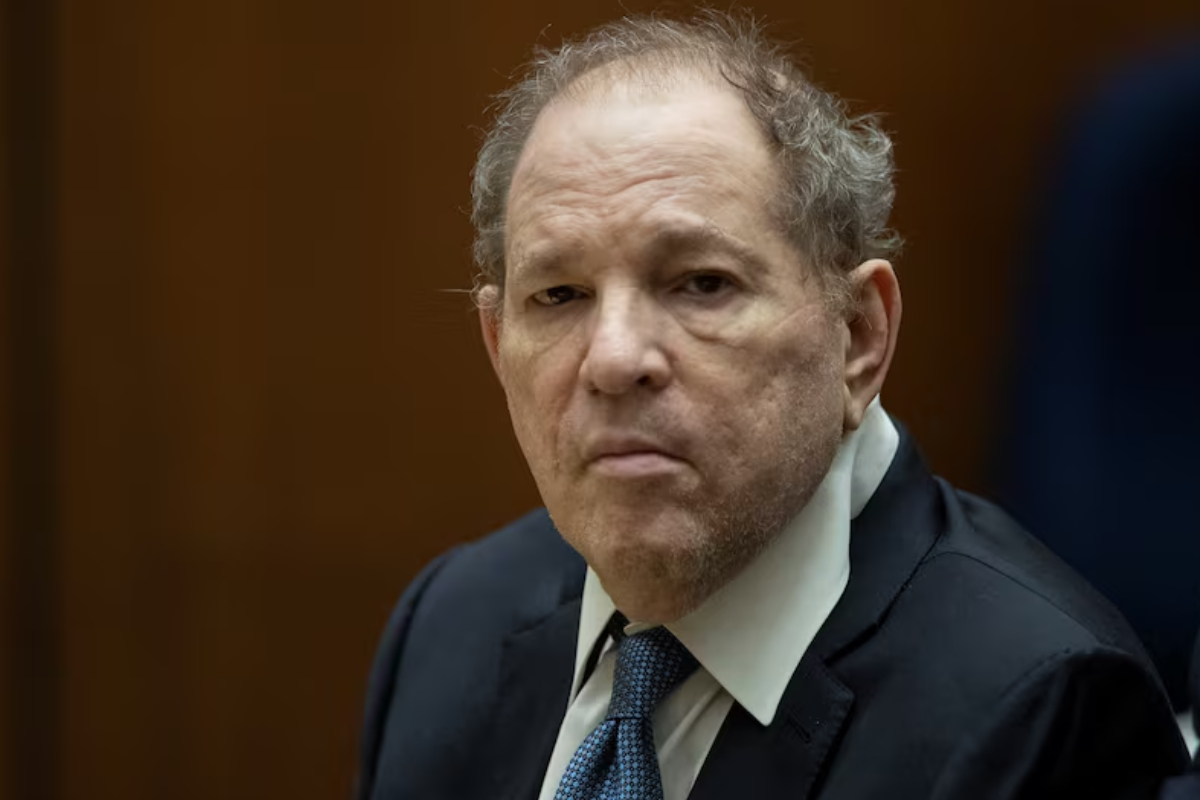Harvey Weinstein’s rape conviction overturned by top New York court
NEW YORK: Harvey Weinstein’s 2020 conviction for sexual assault and rape was overturned by New York’s highest court, reopening the landmark case that fueled the #MeToo movement and highlighting the challenges of holding powerful men accountable.
Many accusers of the former Hollywood movie mogul condemned Thursday’s decision, with the actress Ashley Judd telling reporters it was “an act of institutional betrayal.”
The office of Manhattan District Attorney Alvin Bragg signaled it planned to retry Weinstein. In a bitterly divided 4-3 ruling, the state Court of Appeals said the trial judge made a critical mistake by letting women testify that Weinstein assaulted them, even though their accusations were not part of the charges he faced.
The appeals court said the trial judge compounded the error by ruling that if Weinstein took the witness stand, prosecutors could question him on a wide range of “loathsome” conduct, including bullying and fits of anger toward associates.
It said the ruling had an impact on Weinstein’s decision not to testify in his own defense, undermining a fact-finding process that turned on the parties’ credibility. “The remedy for these egregious errors is a new trial,” Judge Jenny Rivera wrote for the majority.
Weinstein, 72, has been serving a 23-year sentence in a prison in upstate Rome, New York. Jurors in Manhattan convicted him in February 2020 of sexually assaulting former production assistant Miriam Haley in 2006, and raping aspiring actress Jessica Mann in 2013.
The conviction included charges of first-degree sexual assault and third-degree rape. Weinstein was acquitted on other charges.
At a press conference, Weinstein’s lawyer Arthur Aidala called the decision “a great day for America.” Aidala said Weinstein expressed relief when they spoke about the decision, which Weinstein learned about when someone at the prison handed him a piece of paper announcing the outcome.
Weinstein is not expected to be freed immediately, as he faces a separate 16-year prison term imposed last year in California after he was convicted for the 2013 rape of an actress at a Los Angeles hotel. That conviction still stands.
Weinstein’s New York conviction had been considered a milestone for the #MeToo movement, in which women accused hundreds of men in entertainment, media, politics and other fields of sexual misconduct.
“We will do everything in our power to retry this case, and remain steadfast in our commitment to survivors of sexual assault,” Emily Tuttle, a spokesperson for Bragg, said in an email. The case was brought by Bragg’s predecessor, Cyrus Vance.
Judge Madeline Singas dissented from Thursday’s decision, saying the majority opinion “perpetuates outdated notions of sexual violence” and makes holding defendants accountable for sexual assault “significantly more difficult.”
She also accused the majority of whitewashing the facts and continuing what she called a “disturbing trend” of overturning jury verdicts in sexual violence cases. “New York’s women deserve better,” Singas wrote.
A California appeals court is considering whether to overturn Weinstein’s conviction there. Weinstein has denied having non-consensual sexual encounters with anyone.
Any retrial would be overseen by a different judge. Weinstein’s trial judge, James Burke, was not reappointed to the bench after his term expired at the end of 2022.
Some states, including New York, responded to the #MeToo movement by passing laws that let women bring civil lawsuits seeking damages for sexual misconduct that occurred many years earlier even if statutes of limitations had already passed.
Weinstein co-founded the Miramax film studio, whose hit movies included “Shakespeare in Love” and “Pulp Fiction.” His own eponymous film studio filed for bankruptcy in March 2018.
He joins former comedian Bill Cosby among those who have had sexual assault convictions overturned. Cosby’s 2018 conviction was overturned three years later by Pennsylvania’s highest court.
The majority said a 2005 agreement by prosecutors not to charge Cosby with drugging and assaulting a woman meant he should not have been charged a decade later.


